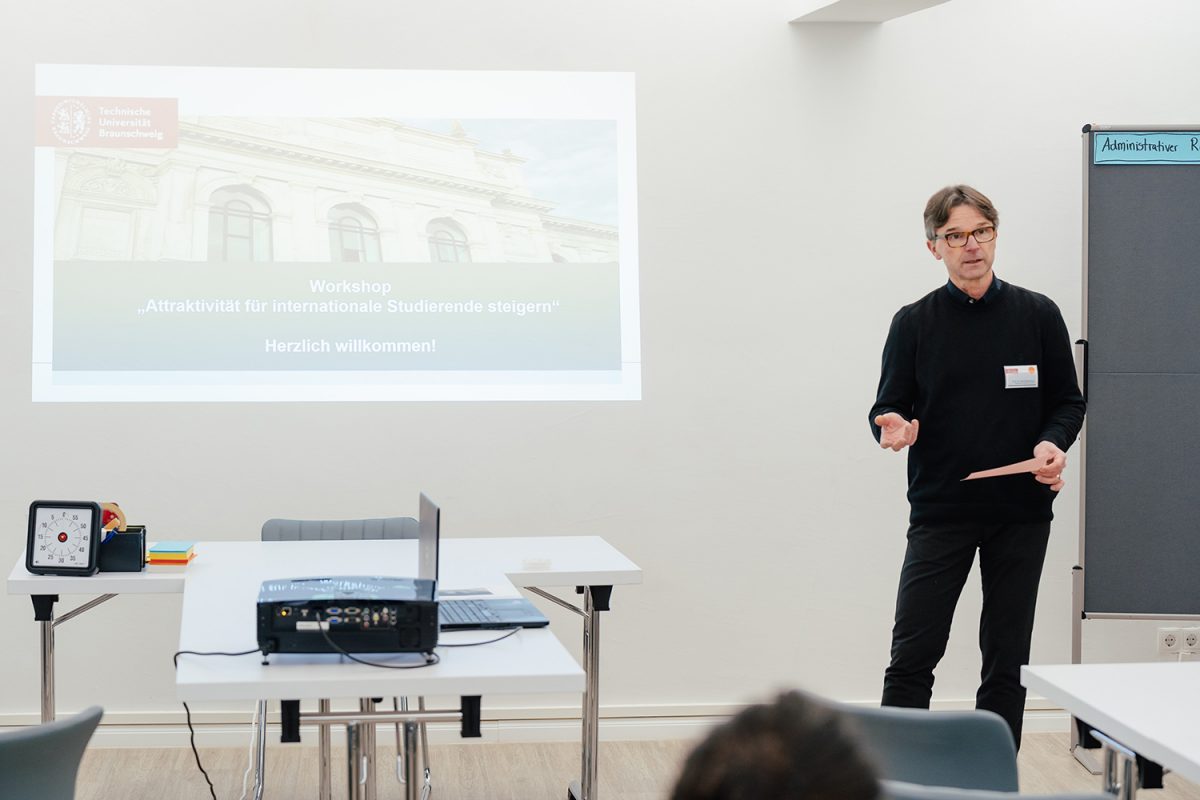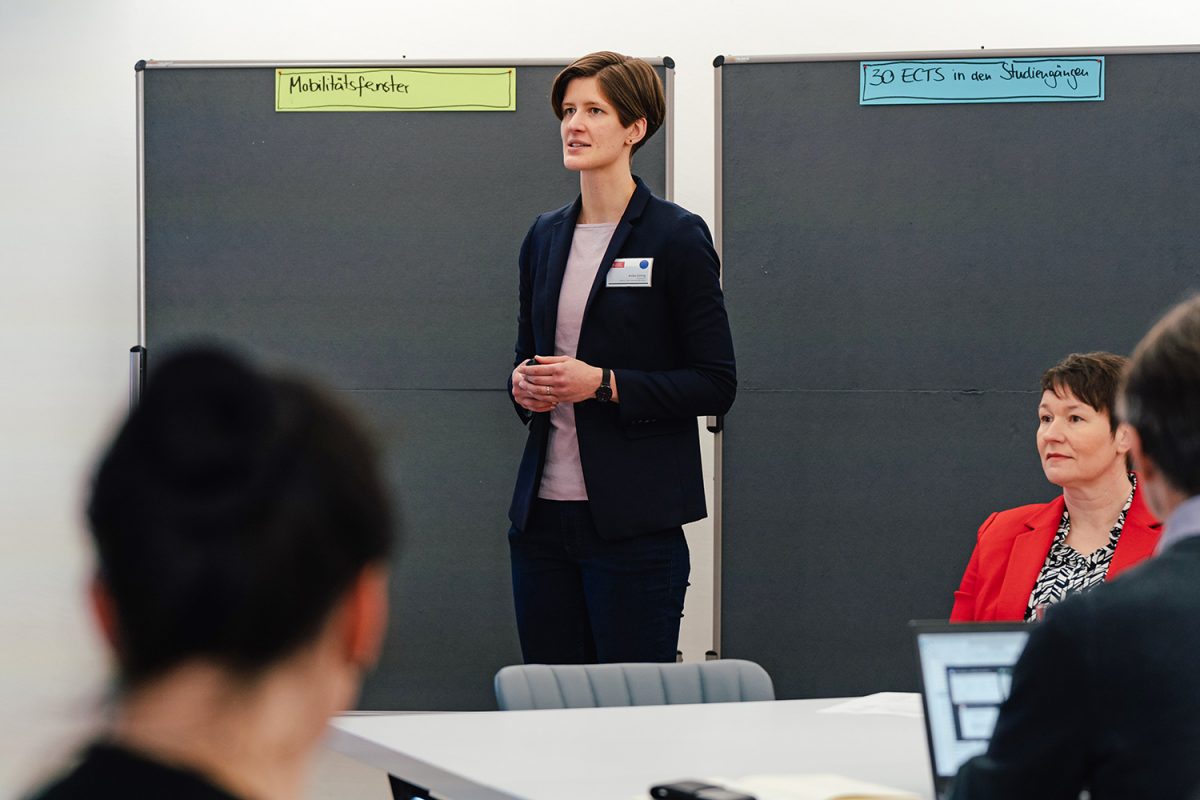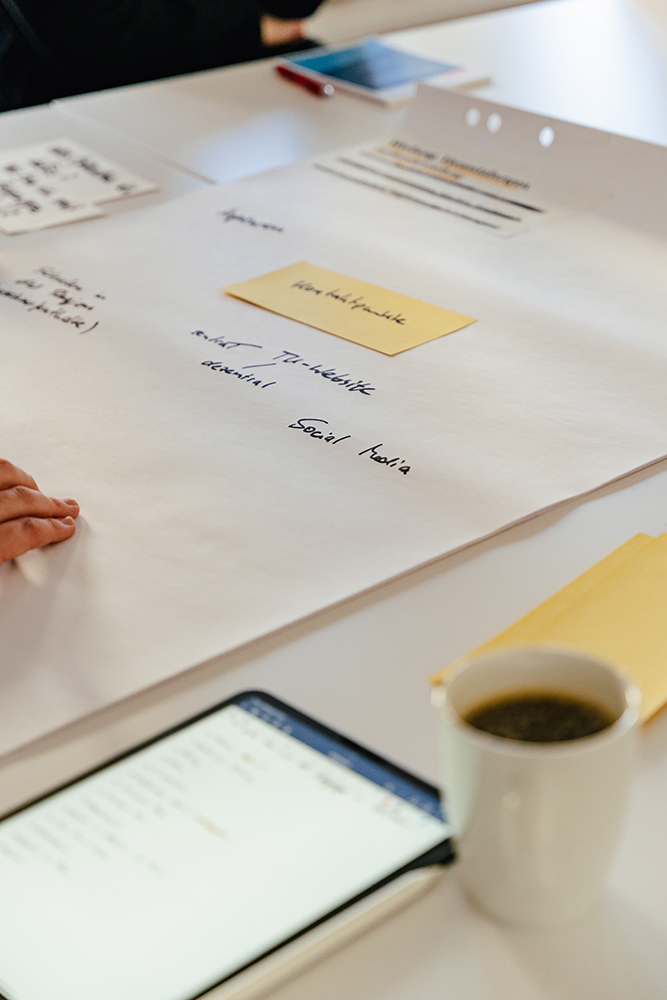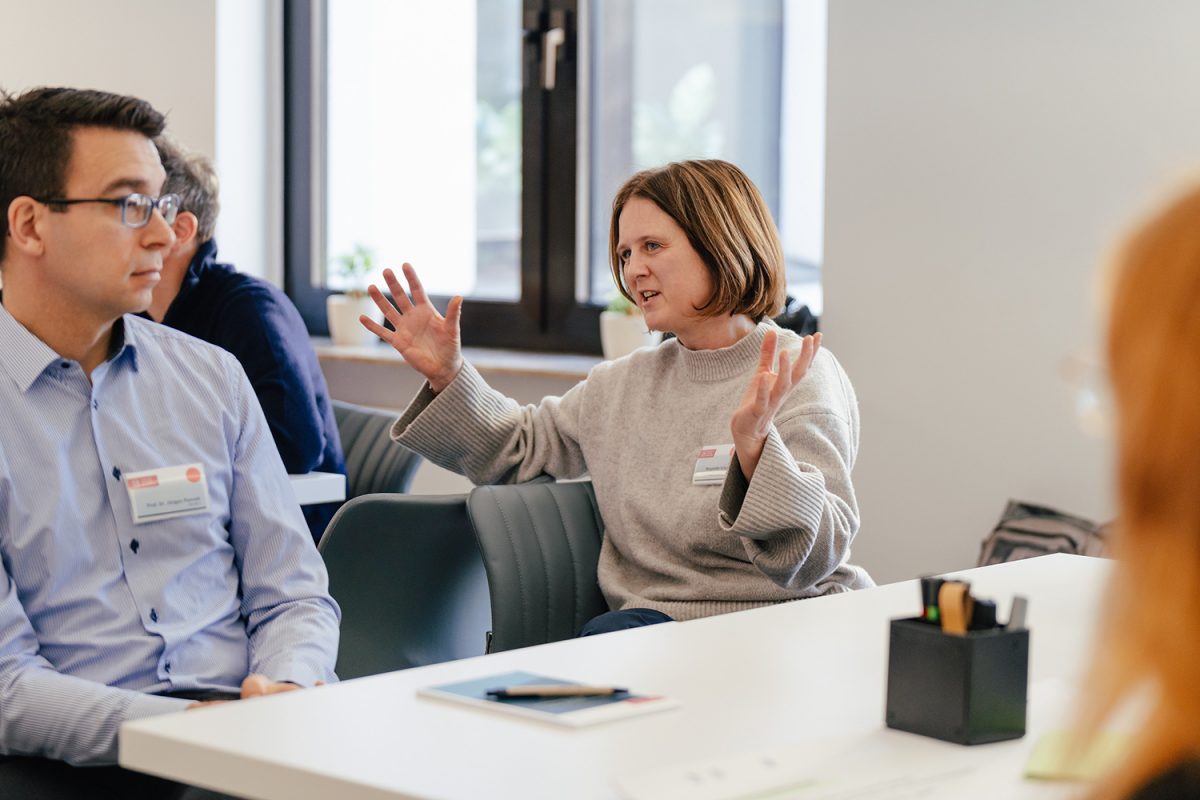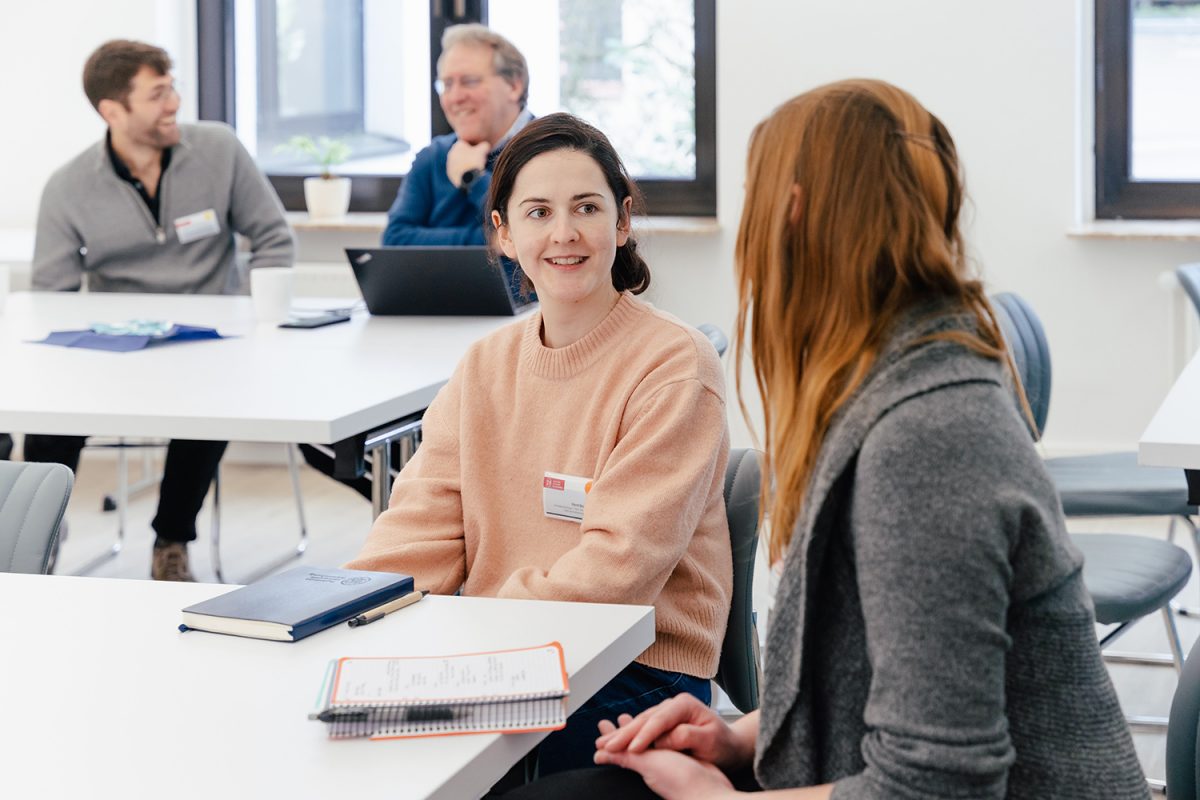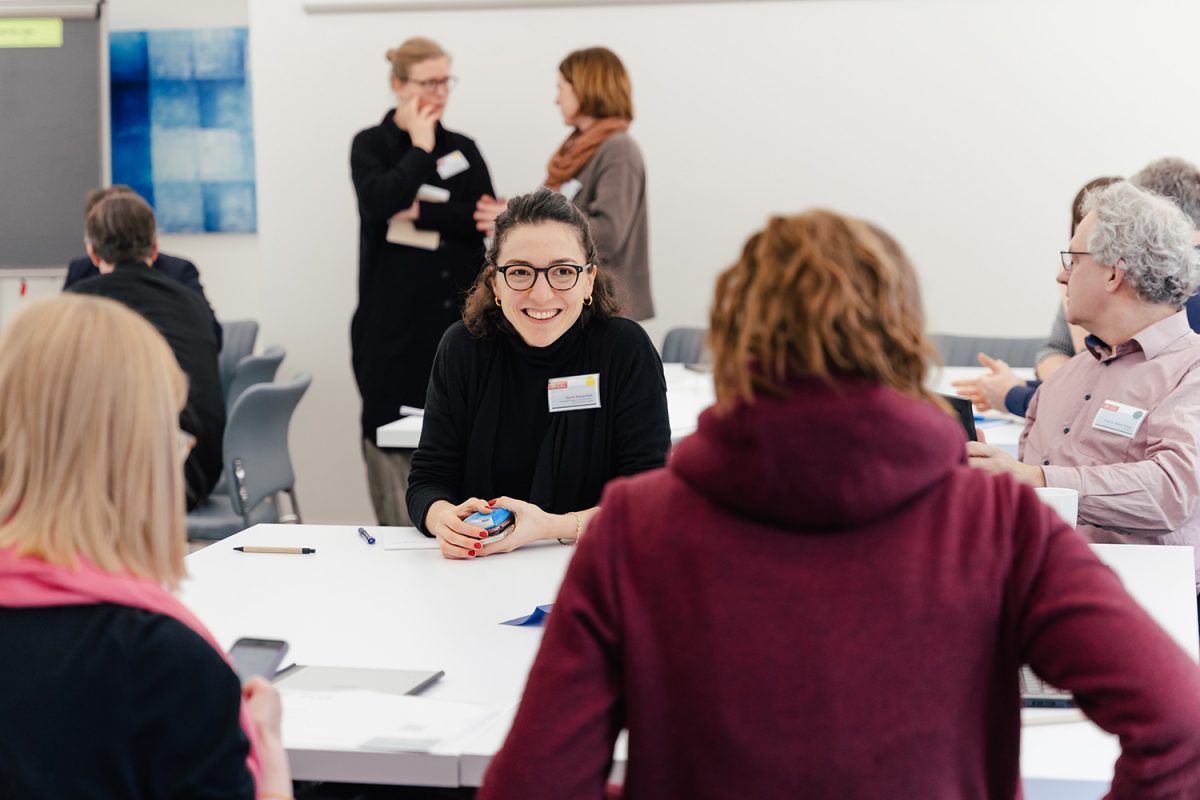Driving internationalisation forward together Workshops within the framework of the Re-Audit²
Whether in the faculties or in the administration – in many places at the university there are stronger efforts to further drive the internationalisation of TU Braunschweig forward. In order to promote and expand these efforts in a targeted manner, the Project House and the International House organised two workshops as part of the Re-Audit². Here, specific goals of the audit were addressed and steps were identified that can be tackled quickly and at a low level.
“Is it going? Yes, it’s going on in the area of internationalisation,” said Prof. Knut Baumann, the Vice-President for Academic and Student Affairs at TU Braunschweig, introducing the workshop on the goal of “Expanding the internationalisation of teaching” of the Re-Audit². He was very happy about the many activities that already existed in this area at the university, but also noted that these were selective actions. “These activities are very much appreciated, but our goal must be to bring these efforts into the mainstream.” With this in mind, there were lively discussions in both workshops across the various status groups. Representatives from the student body, the faculties, the Internationalisation Committee and the Communication and Press Service came together with representatives from the International House and Project House and developed ideas for the further internationalisation of the university in an intensive exchange using the World Café method.
Recruiting of international students
The first workshop focused on the Re-Audit² goal of “increasing attractiveness for international students”. Before the main topics of the day were discussed in small groups, Margarethe Schuseil and Daniel Götjen from the International House gave an insight into the initial situation of recruiting international students at TU Braunschweig. Administrative framework conditions and strategic decisions were addressed in the subsequent exchange, as were the support and boarding services for international students and advertising, events and external presentation for this target group. Finally, the participants drew up roadmaps for possible further action.
Expanding the internationalisation of teaching
While the previous workshop focused directly on students, the second workshop was about the internationalisation of teaching. Teaching staff had been invited in advance to share their experiences in a survey on the status quo of English-language teaching and international teaching cooperation at TU Braunschweig. Franziska Täger and Annabell Körner from the International Teaching Team of the Project House, who evaluated the survey, found that it is important to anchor English-language courses in the curriculum and make them highly visible. “This is the only way we can fundamentally internationalise teaching at TU Braunschweig in the long term,” explained Annabell Körner.
Francesco Ducatelli from the International House then presented possibilities for the internationalisation of teaching and shared successful practical examples from other universities. With this knowledge, the participants went into the discussion rounds. The topics discussed were 30 ECTS of English-language teaching in the degree programmes, the mobility window, and the university’s mission statement and guidelines for internationalisation. They also considered what future focused measures and instruments for the expansion of international teaching could be, such as Joint Curricula or English Tracks. In the in-depth round, the necessary requirements were identified and topic-specific construction kits and prototypes were designed.
Implementation and no white sheets
Anika Düring, head of the International Teaching Team from the Project House, affirmed that the contents developed should be tackled promptly: “We see the workshops as a kick-off for further work on the measures of the Re-Audit². It is now a question of implementation within a realistic timeframe.”
The collected inputs and ideas will now be presented to their own teams, shared in the faculties and it will be checked where to start. In order to improve knowledge management in relation to internationalisation at TU Braunschweig and to bundle the experience and knowledge already gained, the Project House and the International House are now setting up a wiki as a result of the workshops, which all interested teaching staff at TU Braunschweig will be able to access in the future. Further steps, such as the creation of a catalogue of criteria for international courses, which can be used to identify relevant courses and then make them visible in the module handbook, will be implemented immediately.
Go global!
The Re-Audit², which runs under the motto “Go global!”, is scheduled for a total of three and a half years and is currently in the implementation phase. Until the beginning of 2025, the subgroups will continue to work in their fields of action to realise the measures and internationalisation goals agreed upon in the planning phase. In this phase, the subgroups are supported by the International Teaching Team from the Project House, among other things with the organisation of events.
If TU members who are interested in the topic of internationalisation of teaching have any questions or ideas for the further development of international teaching, the International Teaching Team of the Project House would be pleased to be contacted.
The workshops were funded within the framework of the project Promoting Digital education through Global Interconnection funded by the Stiftung Innovation in der Hochschullehre (Foundation Innovation in Higher Education) with funds from the additional grant FBM2020 Plus.

